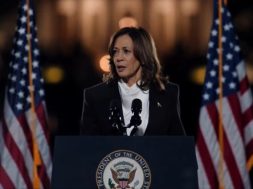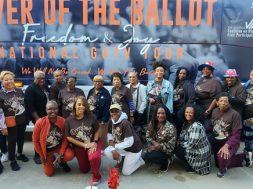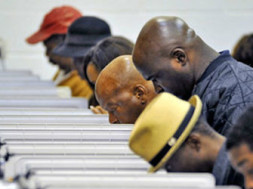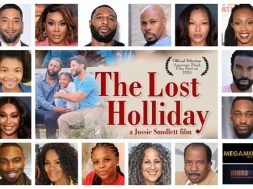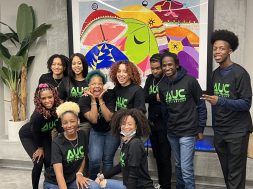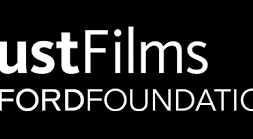Philadelphia, PA – The Philadelphia African American Leadership Forum (PAALF) has released a research report entitled How African American-Led Organizations Differ From White-Led Organizations. The PAALF commissioned the research study conducted by Branch Associates, Inc. with funding from United Way of Greater Philadelphia and Southern New Jersey (UWGPSNJ) and support from Urban Affairs Coalition (UAC). The study was designed to articulate the unique and critical value of African American-led nonprofits, as well as the challenges these organizations face.
“The reality is that African American-led nonprofits are doing more with less during these challenging economic times,” says Kelly Woodland, assistant vice president, Fairmount Ventures, Inc. and former managing director, the PAALF. “We are grateful to the nonprofit leaders, funders and community members that helped us identify the challenges and opportunities before us. Our intent is for these findings to inform actionable steps to strengthen African American-led organizations and promote our leadership within the sector. When funding is directed to our community to support services, it is only right for African American leadership be integrally involved in creating and leading the solutions.”
Over the course of the last two years, members of the PAALF worked with Branch Associates to conduct an extensive survey of more than 145 leaders of human service-oriented nonprofit organizations in Philadelphia, supplemented with qualitative research from African American executive directors and local funders. The key findings that emerged from this research include:
Organizations led by African Americans are smaller, as defined by number of staff and volunteers.
African American-led organizations have fewer cash reserves and are more dependent on government grants than white-led organizations.
African American organizations are more likely to have African American board members and senior staff; and white-led organizations are more likely to have white board members and senior staff.
Predominately Black boards struggle with access to key social networks, which can negatively impact access to funding.
The paucity of African American senior staff at white-led organizations also has implications on the future pipeline of African American leaders.
African American-led organizations are more likely to serve the neediest populations with the least resources while being located where services are needed most.
Funders explained that a large percentage of grants benefit African Americans the most because these nonprofits serve mostly African American clients.
“The knowledge that African American nonprofit leaders bring to this community is invaluable,” says Sharmain Matlock-Turner, president and CEO, Urban Affairs Coalition and co-chair of the PAALF. “This new research gives us a platform to build on that strength by promoting opportunities for increased collaboration, talent development and engagement not only within African American organizations, but across all sectors.”
According to David W. Brown, professor at Temple University and co-chair of the PAALF, this is not the first time that research has helped move a social agenda forward within the black community here in Philadelphia. “From the time that Dr. W.E.B. DuBois studied African Americans in the late 1800’s to this work today, it shows that data does matter in shaping a movement that turns numbers into real action.”
Overall, this first-of-its kind study will provide valuable information to the PAALF, city and nonprofit leaders and funders to use to build the capacity of nonprofits in Philadelphia and the service they provide throughout the region, particularly to the neediest populations.
“African American-led nonprofits are critical in addressing the fundamental needs in our region as a whole and in responding to the needs of the African American community specifically,” adds Jim Cawley, president and CEO, UWGPSNJ. “Our collective voices and experiences are essential in solving problems and improving education for our children, helping families move toward greater financial stability and building stronger and healthier communities. Together, we’re creating Impact that transforms lives.”
The findings of this report, which will be shared with the nonprofit and philanthropic community at large, will also help guide and inform UWGPSJ’s future strategic investments and capacity building programs for local nonprofits.
View the executive summary and full report at www.phillyaalf.org.
About the Philadelphia African American Leadership Forum
Established in 2011, the Philadelphia African American Leadership Forum is a network of African American Leaders committed to improving the quality of life and life chances for the African American community by strengthening the nonprofit sector.
About the Urban Affairs Coalition
The Urban Affairs Coalition (UAC) unites government, business, neighborhoods, and individual initiatives to improve the quality of life in the region, build wealth in urban communities, and solve emerging issues. The Coalition is home to over 60 partner organizations, large and small, working on diverse issues that immediately affect communities. UAC strengthens nonprofit organizations through fiscal sponsorship, capacity building, and program evaluation; improve life chances for youth and young adults; and provide economic opportunity to low-income households, working families, and disadvantaged businesses. Please visit www.uac.org for more information.
About United Way of Greater Philadelphia and Southern New Jersey
United Way of Greater Philadelphia and Southern New Jersey, serving communities in Pennsylvania’s Chester, Delaware, Montgomery and Philadelphia counties, and New Jersey’s Atlantic, Burlington, Camden, Cape May and Cumberland counties, is part of a national network of more than 1,300 locally governed organizations that work to create lasting positive changes in communities and in people’s lives. United Way engages the community to identify the underlying causes of the most significant local issues, develops strategies and pulls together financial and human resources to address them, and measures the results. United Way is advancing the common good in Greater Philadelphia and Southern New Jersey by positively impacting the lives of people throughout the region in the areas of education, financial stability, and health. For more information about United Way of Greater Philadelphia and Southern New Jersey visit UnitedForImpact.org.
